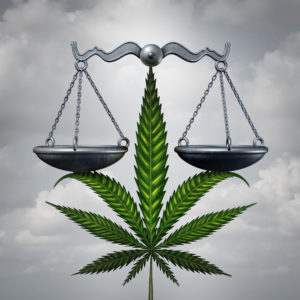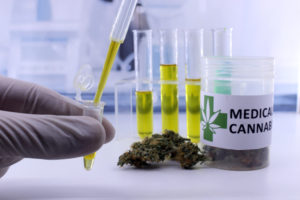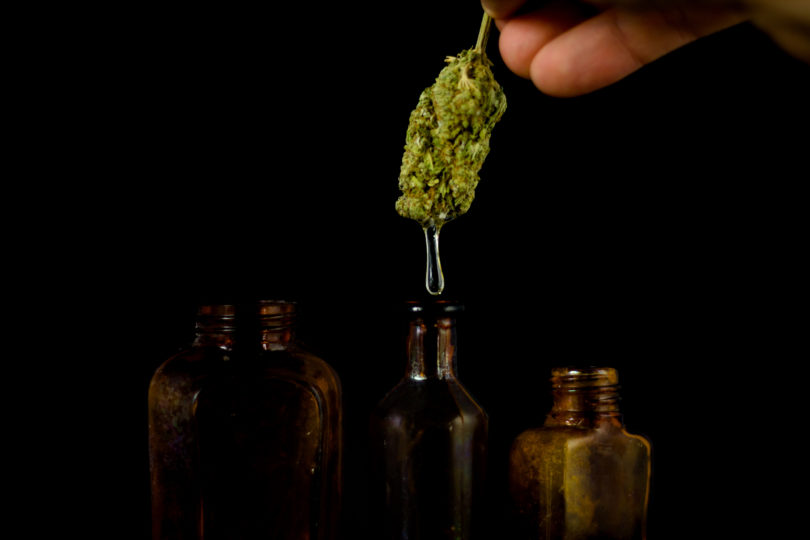Nearly ten hours of testimony about CBD from regulators, health professionals, advocates, opponents, and consumers left the FDA with much to think about.
On Friday, May 31st, the Food and Drug Administration’s (FDA) acting commissioner Ned Sharpless began the first ever public hearing on CBD. This historic meeting was meant to encourage the FDA to develop some much need regulatory framework for the cannabidiol industry, which is booming in every sector but also not permitted as a dietary supplement or in any food items.
Let’s take a look at some of the most important points from the event.
There’s an urgent need for regulations
It goes with out saying but I’ll say it anyway, we desperately need some sort of uniformity when it comes to regulating the CBD industry. Dubbed the “wild west”, the industry has ultimately resorted to regulating itself and while that’s good in some ways, there are also some major drawbacks.

The nation is past due for some official CBD regulations
The lack of government oversight has an impact on everyone involved in the medical cannabis industry. Consumers have no way of knowing what products are safe and legitimate, business owners constantly encounter legal roadblocks while trying to market and sell their products, and ancillary companies are missing out on financial opportunities because they’re wary about getting involved with the CBD industry.
“We strongly recommend [that] the FDA act quickly to clarify the regulatory environment,” said Andrew Kline, Director of Public Policy for the National Cannabis Industry Association (NCIA). “Because there are significant confusions in the market, businesses don’t know what is legally permissible and some are making health claims in the absence of clear regulatory guidance,” he continued. “Most significantly, banks and payment processors don’t understand [the regulatory rules] and as a result many CBD companies are at risk of losing financial services.”
Many products currently available can’t be trusted
Now to piggyback off the previous topic, when there is a lack of regulations, that leaves room for shady companies to infiltrate an industry. Even those of us who write about CBD daily still struggle to find products that can be trusted. With all the investigations coming out lately about products being mislabeled, or contaminated with heavy metals and even some containing cold medication, it’s no wonder everyone is so confused.
Of course there is the option of buying only lab tested products, but even that can get confusing for someone who doesn’t know exactly what they’re looking for. There are those successful, reputable brands that test every single one of their products, every single time. But some companies only test batches so consumers can get an idea of what’s in each product. Then there are others who don’t even bother to send their products for testing and fall back on their marketing abilities instead.
CBD has tremendous potential as a natural healing compound, and if it’s to be taken seriously by the medical community, this uncertainty cannot continue.
There is a lack of presentable scientific data
Representatives from state regulatory agencies in Florida, North Carolina, Pennsylvania, and Virginia discussed the industry confusion from a medical standpoint. They pointed to a veritable lack of research on the benefits and possible risks of cannabidiol use.

Scientific research on cannabinoids is lacking
“Currently, states are struggling with the lack of sound scientific research available in CBD and long-term health impacts, including those to children,” said Pam Miles of the Virginia Department of Agriculture. She added that her department “is hopeful that the FDA will begin to supply significant leadership related to CBD, including research related to its health impacts.”
The FDA also had concerns over possible side-effects, negative drug interactions, and unclear dosing guidelines. When pressed, several medical experts were unable to provide definitive answers about what the proper CBD doses would be in various different scenarios, or what the effects on patients could be.
CBD vs cannabis is causing a lot of confusion
When it came down to hearing from those who oppose cannabis legalization, the meeting room was bogged down with comments about “marijuana” being dangerous and THC being addictive. A lot of these people didn’t couldn’t even differentiate between CBD and the rest of the cannabis plant.
“The public is up against a narrative that is at war with science,” said Pamela McColl from Smart Approaches to Marijuana. “Marijuana is addictive, leads people to harm themselves and damages DNA,” she continued. “The subversion of truth and science and what is going on in North America [is a source of] great concern and reason to pause and do risk assessments on these drugs and analyze the influence of the billionaires and in the industry that have influenced public sentiment and dictated a very deceitful campaign.”
Dr. Murdoc Khaleghi, Senior Medical Adviser for Elevate CBD says: “There is much confusion regarding CBD and its distinction from Cannabis. Such a hearing could therefore be very helpful in recognizing that CBD does not have the psychoactive effects of marijuana, or addiction potential. I expect as regulatory bodies and the public become even more informed regarding CBD and its benefits, access will continue to increase.”
Final Thoughts
With so much information just laid out on the table, the FDA has a big decision to make about CBD – and we hope it comes very soon. For the time being, anyone interested can submit public comments to FDA’s docket on CBD issues from now until July 2nd.

